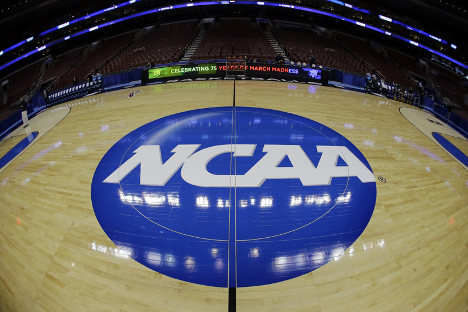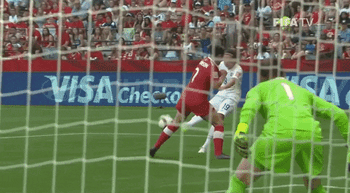
The GIST: On Monday, we said we were so sick of the holier-than-thou student athlete culture, after seven women sued the NCAA for failing to protect them from alleged sexual assaults by male athletes. Turns out the NCAA is finally sick of it, too. That, or they’re also GISTers.
Good! Okay, start from the beginning: About five months ago — thanks to some excellent investigative journalism — a report known as the “Predator Pipeline” was released. The exposé revealed that college athletes are implicated in an outsized share of campus sexual assaults. And that at the time, nothing in the NCAA’s 440-page rulebook stopped those found responsible for sexual or violent misconduct from competing. SMDH.
- But it gets worse. The piece also revealed that even when an athlete was expelled or criminally convicted of sexual offenses, athletes easily transferred to other NCAA schools, often recruited by other coaches, and returned to their sport within a year or less.
Got it — hence the “Predator Pipeline”: Exactly. These athletes could go from school to school to school and repeatedly offend along the way, as the NCAA had no personal conduct policy and no specific penalties for those who committed sexual assault. And apparently, despite being well aware of the issue for years, the NCAA Board of Governors even resisted pressure from US senators to fix it.
So what is the NCAA going to do about this?: Now, the NCAA is saying that athletes must annually disclose acts of violence that resulted in an investigation, discipline through a Title IX proceeding or criminal conviction. And if you’re thinking, “How wasn’t this a rule before?” we had the same response.
Jeez. So it’s all fixed now?: Well, not quite. To us, this new policy is missing one glaring thing: there are still no rules that restrict the eligibility of athletes who have committed these acts. So, technically, even if a student does disclose an act, a school, in theory, could turn a blind eye and allow them to play.
- The new policy puts a big onus on the schools and the athletes themselves, and the NCAA, as the all-seeing regulator, needs to figure out how they’ll deal with the rulebreakers. Regardless, this is definitely a step in the right direction.
Enjoying this article? Want more?

Sign up for The GIST and receive the latest sports news straight to your inbox three times a week.

